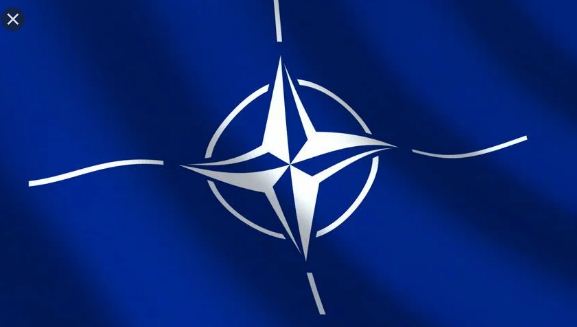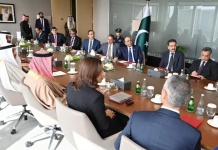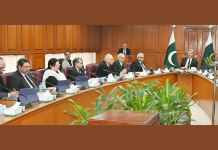ISLAMABAD, June 15, 2021: Pierluigi Barberini, Security and Defence Analyst at the Rome-based Centro Studi Internazionali (Ce.S.I.), stated that NATO was committed to the future stability of Afghanistan despite troop withdrawal. He was speaking at a webinar titled ‘Future of Afghanistan: Challenges and Prospects’ jointly organized by the Institute of Regional Studies (IRS) and Ce.S.I. here on Tuesday.
Barberini shared that there were four main dimensions to future NATO engagement in Afghanistan. First, NATO will continue to financially support the Afghan National Army (ANA) through the ANA Trust Fund established in 2007. He added that the NATO financial commitment was in addition to the US commitment to the separate Afghanistan National Security Fund, which will contribute $3.3 billion annually to the ANA. Second, NATO will continue to provide training to the Afghan security forces, especially to small groups of Afghan special forces in various European locations. Third, NATO will continue to support Afghanistan from the civilian perspective. Fourth, NATO will continue to provide protection of critical infrastructure, such as the Kabul airport. He added that this made the role of the US and Turkey essential, since the two armies were responsible for securing the airport.
Educationist and women’s rights activist from Afghanistan Ms Deeda Shakeb Azami expressed her concern about the human rights situation in Afghanistan and its future prospects, especially the rights of women. She maintained that urban Afghan women were fearing the protection of their rights after a negotiated settlement with the Taliban because women were not allowed to go to school and work under Taliban rule in Afghanistan in the past. She emphasized that the refusal of the Taliban to discuss the future of women in Afghanistan was compounding the fears of Afghan women.
Ce.S.I.’s Senior Analyst for Asia Ms Fracesca Manenti shared that human development indicators (HDI) remained very low for Afghanistan. She further emphasized that not only highlighted the differences between men and women in Afghanistan in terms of access to basic facilities. She added that Afghanistan still had a long way to go to ensure an equitable situation for the vulnerable segments of the society, especially women. She urged taking a non-traditional security approach to the ongoing dialogue with the Taliban, which, she argued could bind the Taliban to certain human rights commitments for the future of Afghanistan.
Founder of the Islamabad-based not-for-profit organization CODE PAKISTAN Mr Dilawar Khan stated that repatriation of Afghan refugees was the top preference for Pakistan but the numbers of refugees repatriating were quickly declining. Sharing data about the Afghan refugees in Pakistan, he highlighted the role played by Pakistan in hosting such a large concentration of refugees for such a long time. He shared that several Afghan refugees who were born and raised in Pakistan associated more with Pakistan than Afghanistan, which was an inhibiting factor when it came to their repatriation. He added that safety concerns of the refugees remained the primary factor in the refugees’ decision to repatriate to Afghanistan.
Gabriele Iacovino, Director C.e.S.I. who was moderating the discussion, said that stability in Afghanistan was important not only for the region but the whole world. Earlier, in his welcome remarks, President IRS Ambassador Nadeem Riyaz highlighted the importance of peace and stability in Afghanistan for the future peace and prosperity of the entire region.

















